#Node.js for real-time applications
Explore tagged Tumblr posts
Text
Node.js Development: Everything You Need to Know in 2025
In 2025, Node.js development continues to be a powerful tool for building efficient, scalable, and real-time applications. This backend JavaScript framework has become a go-to technology for backend development, favoured by developers for its speed, flexibility, and vast ecosystem. Here’s everything you need to know about Node.js development trends, advantages, and key considerations in 2025.
Why Node.js Remains Popular in 2025
Node.js has gained a strong foothold in web and app development due to its high performance and ability to handle large volumes of simultaneous requests, making it ideal for data-intensive applications. Its non-blocking, event-driven architecture allows developers to build scalable web applications that can easily support thousands of concurrent users.
Key Node.js Trends to Watch in 2025
Serverless Architecture: Serverless is growing in popularity, and Node.js serverless applications fit perfectly with this trend. In a serverless environment, developers don’t need to manage server infrastructure; they focus instead on writing code. This approach can reduce development costs and improve scalability, making Node.js a key player in the serverless computing market.
Edge Computing: As demand for faster data processing rises, Node.js for edge computing is becoming crucial. By enabling data processing closer to the data source, Node.js helps reduce latency and improve application performance, particularly in real-time applications.
Microservices Architecture: Microservices are essential for large-scale, modular applications. Node.js, with its lightweight nature, is perfect for Node.js microservices architecture, allowing developers to build small, independent services that can be deployed and scaled individually.
Artificial Intelligence (AI) and Machine Learning (ML) Integration: In 2025, integrating AI and ML models into applications is a significant trend. Node.js with AI and ML is compatible with powerful machine-learning libraries, making it an attractive choice for developers looking to create intelligent applications.
Benefits of Using Node.js in 2025
High Performance: Node.js uses the V8 engine, offering impressive speed and efficient execution of JavaScript. This makes it suitable for applications requiring fast response times, such as real-time applications, chat applications, and IoT devices.
Rich Ecosystem: The Node.js ecosystem, including npm (Node Package Manager), gives developers access to a wide range of reusable modules and libraries. This Node.js ecosystem reduces development time and helps accelerate project timelines.
Cross-Platform Compatibility: Node.js Development cross-platform applications work well across different platforms, making it easier for developers to build applications that run seamlessly on various operating systems.
Scalability: The non-blocking, asynchronous architecture of Node.js for scalable applications makes it easy to scale horizontally, supporting increased workloads as businesses grow.
Best Practices for Node.js Development in 2025
Leverage TypeScript: Using TypeScript with Node.js enhances code quality and reduces bugs, making it a valuable addition to any development project.
Prioritize Security: Security is a primary concern for developers, particularly in 2025, as cyber threats grow more sophisticated. Implementing Node.js security best practices, like input validation and rate limiting, is essential for protecting applications.
Adopt CI/CD Pipelines: Continuous integration and continuous deployment (CI/CD) pipelines streamline development and ensure faster, more reliable Node.js deployments.
Conclusion
Node.js continues to be a versatile and high-performance choice for backend development in 2025. Its adaptability to trends like serverless architecture, microservices, and AI integration makes it a prime technology for building future-ready applications. By leveraging the power of Node.js developers, businesses can develop scalable, efficient, and intelligent solutions to stay ahead in the digital landscape.
#Node.js development trends 2025#Node.js development best practices#Node.js for web development 2025#latest features in Node.js 2025#Node.js performance optimization#Node.js vs other frameworks 2025#Node.js for backend development#Node.js security best practices#scalable Node.js applications#future of Node.js development#full-stack development with Node.js#Node.js development services USA and UK#how to hire Node.js developers#Node.js in microservices architecture#Node.js for real-time applications#top Node.js frameworks 2025#Node.js development tools#asynchronous programming in Node.js#Node.js for enterprise solutions#Node.js and serverless architecture
1 note
·
View note
Text
Building a Chat Application with Node.js
Building a Real-Time Chat Application with Node.js
Introduction Chat applications have become a staple in modern web applications, providing real-time communication between users. Node.js, with its non-blocking I/O and event-driven architecture, is an excellent choice for building chat applications. In this guide, we will walk through the process of building a simple chat application using Node.js, Express, and Socket.io. Overview We will…
#chat application#Node.js#Node.js tutorial#real-time web applications#Socket.io#web development#WebSockets
0 notes
Text
Real-Time Data Sync with Mosquitto MQTT in Angular
Discover how to achieve Real-Time Data Sync with Mosquitto MQTT in Angular. Our latest blog guides you through integrating Angular with Mosquitto MQTT to create dynamic, real-time data dashboards. Perfect for IoT projects and interactive web applications!
Real-time data synchronization is crucial for building responsive and dynamic applications. In this guide, we focus on achieving real-time data sync with Mosquitto MQTT in Angular. This combination allows you to create a seamless, interactive data dashboard that efficiently handles real-time updates. Whether you are working on an IoT project or developing a real-time web application, this guide…
#Angular#Angular MQTT Integration#data synchronization#Dynamic Data Dashboard#Interactive Web Apps.#IoT#Mosquitto MQTT#MQTT Angular Tutorial#MQTT broker#Node.js#real-time applications#Real-Time Data Sync#Real-Time Data Synchronization#Web Application Development
0 notes
Text
0 notes
Text
🎬 Entertainment App Development Services: Build the Future of Digital Entertainment
In a digital-first world where users stream, binge, listen, and share content 24/7, the demand for entertainment app development services is skyrocketing. Whether you're launching the next Netflix, Spotify, or a regional OTT platform, a powerful entertainment app can place your content at the fingertips of millions.
This blog explores everything you need to know about building a successful entertainment mobile app—features, tech stack, monetization models, and how the right development partner can turn your vision into a captivating, scalable reality.
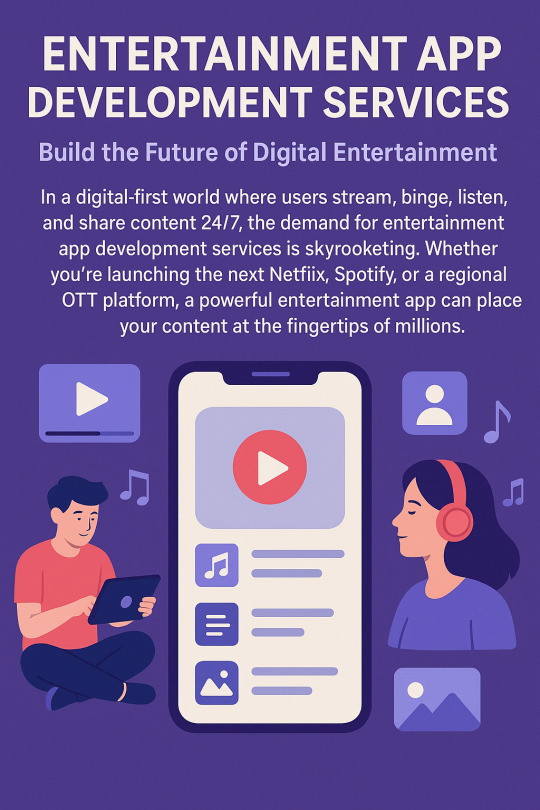
📱 Why You Need an Entertainment App in 2025
The entertainment industry is undergoing a massive digital shift. With over 6.5 billion smartphone users globally, streaming content—whether video, music, or live performances—has become the new normal. Audiences demand convenience, personalization, and immersive experiences, all of which can be delivered through a well-developed mobile application.
From OTT platform development to podcast and music streaming apps, custom solutions are now essential for media brands, production houses, indie artists, and entertainment startups.
📈 Market Stats Worth Noting:
The global video streaming market is expected to surpass $920 billion by 2030.
Time spent on entertainment and media apps increased by 40% post-pandemic.
Subscription-based platforms like Netflix, Hotstar, and Gaana have seen record-breaking growth.
If you're in the business of content creation or distribution, now is the time to invest in expert entertainment app development services.
🛠️ Core Features of a Winning Entertainment App
To compete with giants like Netflix, Spotify, or Amazon Prime, your app must go beyond basic functionality. Here's what users expect from a top-tier entertainment mobile app:
1. Content Streaming (Video/Audio)
High-quality streaming with adaptive bitrate, low buffering, and seamless playback across devices.
2. User Profiles & Personalization
Smart algorithms that recommend content based on watch history, preferences, or listening habits.
3. Subscription & Monetization Models
Support for freemium access, in-app purchases, advertisements, and recurring subscriptions.
4. Search & Filter
Powerful content discovery with keyword search, genres, languages, trending content, and more.
5. Multi-Platform Access
Cross-platform compatibility (Android, iOS, smart TVs, tablets, etc.) with a unified user experience.
6. Offline Downloads
Let users enjoy content without internet access by enabling secure offline downloads.
7. Live Streaming
Incorporate live shows, concerts, or podcasts with real-time chat and engagement.
8. Push Notifications
Keep users engaged by notifying them about new releases, trending content, and personalized suggestions.
9. Social Sharing & Integration
Let users share what they watch or listen to on social media, enhancing app visibility and virality.
🧠 Choosing the Right Technology Stack
Behind every great entertainment app is a powerful and scalable tech architecture. Here's what a reliable entertainment app development company should offer:
➤ Frontend (Mobile App Development)
React Native / Flutter for cross-platform development
Swift (iOS) and Kotlin (Android) for native apps
Custom UI/UX based on Figma, XD, or Sketch
➤ Backend
Node.js, Laravel, or Django for scalable API architecture
MongoDB or PostgreSQL for content and user data
Real-time databases like Firebase for chat, notifications, and analytics
➤ Streaming & CDN
Integration with AWS CloudFront, Vimeo OTT, or Wowza
DRM support to prevent piracy
Adaptive Bitrate Streaming (HLS, MPEG-DASH)
➤ Analytics & Recommendation Engine
Firebase, Mixpanel, or Google Analytics for user behavior
AI-powered recommendation engine to boost engagement and retention
💰 Monetization Strategies for Entertainment Apps
Monetization is crucial. Your entertainment app can generate recurring revenue through several models:
🔒 Subscription (SVOD)
Offer access to premium content on a weekly, monthly, or annual basis.
🎯 Advertisement (AVOD)
Free content monetized through banner ads, interstitials, or video ads using Google AdMob or Facebook Audience Network.
📥 Pay-per-view
Ideal for exclusive concerts, movie releases, or premium shows.
💼 Freemium
Provide basic content for free while charging for access to premium features or shows.
🤝 Why Hire Expert Entertainment App Developers?
Entertainment apps are high-stakes projects. Performance issues, bugs, or poor user experience can lead to instant churn. Here’s why hiring a team with domain expertise in entertainment mobile app development is critical:
They understand media licensing, content management, and user behavior.
They can optimize infrastructure for millions of concurrent users.
They’re familiar with UI/UX best practices that align with binge-watching or continuous listening behaviors.
They offer post-launch support for updates, bug fixes, and user feedback handling.
A team like Kickass Developers, with expertise in custom mobile app development, OTT app development, and audio/video streaming, ensures your idea is executed with precision and long-term scalability.
🚀 Final Thoughts: Your Entertainment App Is the Future of Engagement
Whether you’re building a regional OTT app, a music discovery platform, or a niche video streaming service, your success hinges on the right blend of technology, UX, scalability, and speed to market.
Investing in experienced entertainment app development services is your first step toward captivating your audience, building loyalty, and driving recurring revenue.
📞 Ready to Build Your Entertainment App?
Looking for a team that understands the entertainment industry inside and out?
Kickass Developers specializes in designing custom, high-performance entertainment applications tailored to your audience, brand, and growth goals.
📧 Contact us today at [email protected] 🌐 Or visit us at kickassdevelopers.com
#Entertainment App Developers#OTT App Development#Video Streaming App Services#Music App Development#Android Entertainment App#iOS Video App#Podcast App Developers#Live Streaming App Development#Subscription App Development
2 notes
·
View notes
Text
When it comes to building high-performance, scalable, and modern web applications, Node.js continues to stand out as a top choice for developers and businesses alike. It’s not just another backend technology it’s a powerful runtime that transforms the way web apps are developed and experienced.
Whether you're building a real-time chat app, a fast eCommerce platform, or a large-scale enterprise tool, Node.js has the flexibility and speed to meet your needs.
⚡ High Speed – Powered by Google’s V8 engine.
🔁 Non-blocking I/O – Handles multiple requests smoothly.
🌐 JavaScript Everywhere – Frontend + backend in one language.
📦 npm Packages – Huge library for faster development.
📈 Built to Scale – Great for real-time and high-traffic apps.
🤝 Strong Community – Get support, updates, and tools easily.
Your next web app? Make it real-time, responsive, and ridiculously efficient. Make it with Node.js.
#nodejs development company in usa#node js development company#nodejs#top nodejs development company#best web development company in usa
2 notes
·
View notes
Text
Aamod ItSolutions: Crafting Custom Websites with Modern Technologies for Your Business’s Success
In today’s digital world, having an effective website is crucial for business success. Aamod ItSolutions offers expert web design, development, and marketing services that help businesses make the most of their online platforms. Our team of skilled designers and developers uses modern technologies to build custom, user-friendly, and reliable websites tailored to your specific needs.
Why Web Development Matters
A website serves as a business’s online identity. It enables businesses to reach a wider audience, engage with customers, and boost sales. A professionally developed website builds trust, enhances credibility, and positions your business as a leader in the market.
At Aamoditsolutions, we focus on delivering websites that provide excellent user experience (UX), performance, and scalability. We employ various modern technologies to ensure your site meets business goals efficiently.
Technologies We Use
Laravel: Laravel is a powerful PHP framework used for building secure, scalable web applications. It simplifies development with features like Eloquent ORM for database management and Blade templating for creating dynamic views. Laravel is great for complex applications with robust security features.
CodeIgniter: CodeIgniter is a lightweight PHP framework known for its speed and simplicity. It’s ideal for developers looking for quick setups and minimal configuration. With its MVC architecture, CodeIgniter is perfect for building fast, high-performance websites, especially when project deadlines are tight.
CakePHP: CakePHP is another PHP framework that streamlines the development process with built-in features like form validation and security components. It helps deliver web apps quickly without compromising quality. CakePHP is ideal for projects that need rapid development with a focus on database-driven applications.
Node.js: Node.js is a JavaScript runtime for building fast and scalable applications. It is especially useful for real-time web apps such as chat applications or live notifications. Node.js provides non-blocking I/O operations, enabling it to handle many simultaneous connections without performance loss.
AngularJS: AngularJS is a framework developed by Google for building dynamic, single-page applications (SPAs). Its features like two-way data binding and dependency injection make it perfect for building interactive user interfaces that update in real time without reloading the entire page.
Why Choose Aamod ItSolutions?
At AamodItSolutions, we use the latest tools and technologies to build high-performance, secure, and user-friendly websites that help you grow your business. Whether you’re a startup or a large corporation, we create custom solutions that align with your objectives.
We understand that every business has unique needs. That’s why we choose the right technology for each project to ensure optimum results. By working with us, you can expect a website that provides a seamless experience for your users and contributes to your business growth.
Let Aamod ItSolutions help you create a powerful online presence that engages customers and drives business success.
#cosplay#drew starkey#bucktommy#entrepreneur#harley quinn#jujutsu kaisen#english literature#black literature#blush#kawaii
3 notes
·
View notes
Text
What is Mern stack And Its importance? Before that I will Tell you the best institute for Mern stack course in Chandigarh.

What is Mern stack?
MERN Stack is a popular JavaScript-based technology stack used for building full-stack web applications. It consists of four key technologies:
MongoDB: A NoSQL database that stores data in a flexible, JSON-like format.
Express.js: A lightweight and fast backend framework for Node.js.
React.js: A front-end JavaScript library for building user interfaces.
Node.js: A runtime environment that allows JavaScript to run on the server side.
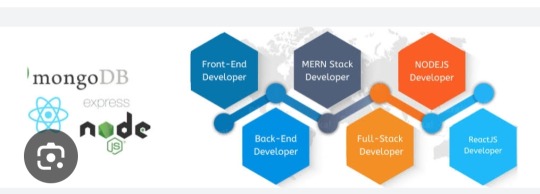
Importance of Mern Stack :
Full-Stack JavaScript – Uses JavaScript for frontend and backend, simplifying development.
High Performance – Node.js ensures fast, scalable applications.
Cost-Effective – Open-source, reducing development costs.
Rapid Development – React’s reusable components speed up UI building.
Flexibility – Suitable for web apps, SPAs, eCommerce, and real-time applications.
Scalability – MongoDB handles large data efficiently.
Strong Community Support – Large developer base ensures continuous updates and support.
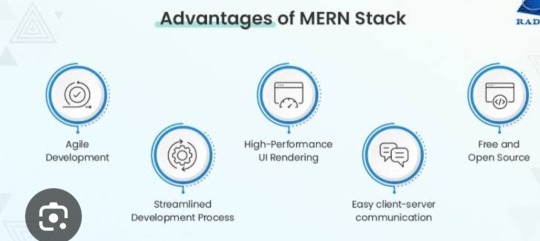
Now i will tell you the best institute for Mern stack course in Chandigarh .
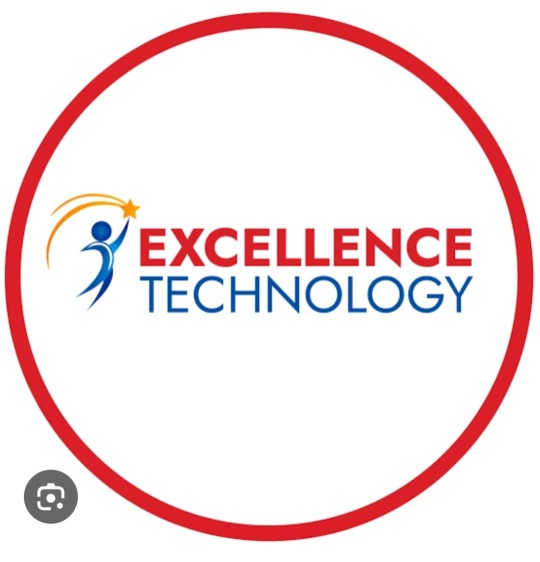
Excellence Technology is a leading EdTech (Educational technology) company dedicated to empowering individuals with cutting -edge IT skills and bridging the gap between education and industry demands. Specializing in IT training ,carrer development, and placement assistance ,the company equipts learners with the technical expertise and practical experience needed to thrive in today's competitive tech landscape. We provide IT courses like python ,Full stack Development, Web Design ,Graphic Design and Digital Marketing.
Contact Us for more details: 93177-88822
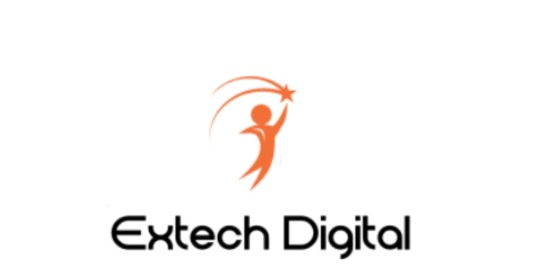
Extech Digital is a leading software development company dedicated to empowering individuals with cutting -edge IT skills and bridging the gap between education and industry demands. Specializing in IT training ,carrer development, and placement assistance ,the company equipt learners with the technical expertise and practical experience needed to thrive in today's competitive tech landscape. e provide IT courses like Python ,Full stack Development, Web Design ,Graphic Design and Digital Marketing.
Contact Us for more details: 93177-88822

Excellence academy is a leading software development company dedicated to empowering individual with cutting edge IT skills and bridging the gap between education and industry demands.specializing in IT training, career development, and placement assistance, the company equits learners with the technical expertise and practical experience needed to thrive in today's landscape. We provide IT courses like python, full stack development,Web design, and Digital marketing.
Contact Us for more details: 93177-88822
About Author
Nikita Thakur
Mern stack AI Developer/ 2+ years of experience
Excellence technology
Professional summary
Nikita thakur is a skilled MERN Stack AI Developer with over 2 years of experience at Excellence Technology. Proficient in MongoDB, Express.js, React.js, and Node.js, she integrates AI solutions to build scalable, high-performance web applications. Nikita excels in developing innovative solutions, enhancing user experiences, and driving business growth through technology.
2 notes
·
View notes
Text
What is SaaS and How to Build a SaaS Platform
What is SaaS? SaaS, or Software as a Service, is a cloud-based software delivery model where applications are hosted online and accessed through the internet. Unlike traditional software that requires installation, SaaS applications run on web browsers, offering convenience and flexibility. The provider manages all technical aspects, including updates, maintenance, and security, while users pay a subscription fee for access.
SaaS is popular for its cost-effectiveness and scalability. Businesses use SaaS for tools like customer relationship management (CRM) systems, project management platforms, and communication solutions. Consumers also rely on SaaS for entertainment and personal productivity.
How to Build a SaaS Platform If you're wondering how to build a SaaS platform, here are the essential steps:
Define Your Purpose: Start by identifying a problem that your SaaS platform will address. Research your audience and focus on a specific niche.
Plan Features: List features that add value, such as easy navigation, integrations, and real-time collaboration. Scalability should also be a priority.
Select the Right Technology: Choose technologies like React for frontend development, Node.js or Python for backend, and cloud hosting platforms like AWS.
Create an MVP: Build a Minimum Viable Product to test your concept, gather feedback, and refine your platform.
Ensure Security: Implement strong encryption, secure authentication, and regular updates to protect user data.
By understanding what SaaS is and following these steps, you can build a successful SaaS platform that meets market needs.
2 notes
·
View notes
Text
🌐 Top 10 Tools Every Web Developer Should Know in 2024 🚀
Hey, guys👋 If you're diving into the world of web development or looking to level up your skills, here are the top 10 tools you need to check out this year:
Visual Studio Code - The ultimate code editor with tons of extensions to boost your productivity. 💻✨
GitHub - Manage your code and collaborate with others seamlessly. 🛠️🤝
Bootstrap - Design responsive websites quickly with this popular CSS framework. 📱🎨
Figma - Collaborate on UI/UX designs in real-time with this powerful design tool. 🖌️👥
Node.js - Build scalable server-side applications using JavaScript. 🌐🔧
Webpack - Optimize your JavaScript files and manage dependencies efficiently. ⚙️📦
React.js - Create interactive UIs with this widely-used JavaScript library. ⚛️🔍
Sass - Write more maintainable CSS with features like variables and mixins. 🧩📝
Postman - Test APIs and ensure everything runs smoothly. 🔍💡
Jira - Track tasks and manage agile workflows for smooth project management. 📊📅
These tools can supercharge your development process and help you build amazing web applications. For those looking to take their projects to the next level, partnering with a web application development agency could be the key to unlocking even more potential. 🚀💼
#WebDevelopment#Coding#DeveloperTools#VisualStudioCode#GitHub#Bootstrap#Figma#NodeJS#Webpack#ReactJS#Sass#Postman#Jira#TechTips#WebApplicationDevelopment
3 notes
·
View notes
Text
Real-time Web Applications with Socket.io and Node.js
Building Real-Time Web Applications with Socket.io and Node.js
Introduction Real-time web applications have become increasingly popular, allowing instant updates and interactions. Applications like chat rooms, live notifications, and collaborative tools benefit greatly from real-time capabilities. Socket.io is a powerful library for building real-time applications, providing a simple and reliable way to implement WebSockets in Node.js. This guide will walk…
#chat application#Node.js#Node.js tutorial#real-time web applications#Socket.io#web development#WebSockets
0 notes
Text
Real-Time Data Synchronization with Mosquitto MQTT in Node.js
Real-time data synchronization is crucial in modern applications like IoT, live chats, and online games. Mosquitto MQTT, a lightweight messaging protocol, is perfect for such use cases due to its efficient, reliable, and low-bandwidth communication. This blog will guide you through setting up Mosquitto MQTT and integrating it with Node.js, providing code snippets and best practices to ensure a…
#data synchronization#error handling#IoT#Mosquitto#MQTT#MQTT best practices#MQTT broker#MQTT integration#MQTT publisher#MQTT subscriber#Node.js#Node.js MQTT#QoS levels#real-time applications#real-time data#scalable MQTT#secure MQTT#TLS/SSL MQTT
0 notes
Text
Jclicksolutions Launches MERN Stack Training in Nagercoil: Empowering Aspiring Full-Stack Developers
The demand for skilled web developers continues to rise as businesses across industries move online. To meet this growing need, Jclicksolutions is excited to offer an intensive MERN Stack training program in Nagercoil, providing aspiring developers and professionals with the essential skills to build full-stack web applications. This program focuses on the MERN Stack, a popular framework that uses JavaScript across both front-end and back-end development, making it an ideal solution for dynamic and scalable applications.
What is the MERN Stack?
The MERN Stack is a combination of four powerful technologies:
MongoDB: A NoSQL database, perfect for handling and managing large amounts of data with flexibility and ease.
Express.js: A fast and minimalist web framework for Node.js, used to build robust server-side applications.
React.js: A highly efficient JavaScript library developed by Facebook for creating interactive user interfaces.
Node.js: A runtime environment that allows JavaScript to be used for server-side scripting, enabling full-stack development using a single language.
The MERN Stack is one of the most sought-after development frameworks due to its versatility, scalability, and widespread use in the industry. Companies across the globe are adopting MERN Stack for building responsive and efficient web applications, creating a significant demand for developers proficient in this framework.
Why Choose Jclicksolutions in Nagercoil?
JClickSolutions is a leading IT training provider, known for delivering industry-relevant programs that prepare students for real-world challenges. The MERN Stack course in Nagercoil offers several unique benefits:
Comprehensive Curriculum: The course covers all core elements of the MERN Stack, providing in-depth training on MongoDB, Express, React, and Node.js. Participants will gain practical experience in front-end and back-end development, enabling them to build complete web applications from scratch.
Hands-on Learning: The training is project-based, giving students the opportunity to work on real-world applications. By building live projects, participants will develop practical skills and a strong portfolio that showcases their expertise.
Expert Instructors: Jclicksolutions' MERN Stack training is led by experienced developers with years of experience in full-stack development. They provide personalized guidance and mentorship, helping students understand the nuances of each technology.
Flexible Learning Options: The course offers flexible schedules, including both online and in-person classes, catering to students, working professionals, and tech enthusiasts. This allows participants to learn at their own pace while balancing other commitments.
Career Support: Jclicksolutions provides end-to-end career support, including resume building, interview preparation, and job placement assistance. Graduates of the MERN Stack program are well-prepared to enter the job market and secure positions in top tech companies.
The Growing Demand for MERN Stack Developers
The rise of web-based applications has increased the demand for full-stack developers proficient in frameworks like MERN. With companies looking for scalable, high-performance solutions, MERN Stack has become a go-to choice for building modern web applications. Learning the MERN Stack opens up numerous job opportunities, from startups to large enterprises.
Why Nagercoil?
As a growing tech hub, Nagercoil is witnessing increased investment in IT and software development sectors. Jclicksolutions' decision to offer MERN Stack training in Nagercoil comes at a perfect time, giving local talent the opportunity to develop skills without relocating to larger cities. The course provides a gateway to lucrative career options in web development, both locally and globally.
Conclusion
The MERN Stack training program at Jclicksolutions in Nagercoil is the perfect stepping stone for anyone looking to build a successful career in web development. With its industry-aligned curriculum, hands-on projects, and expert mentorship, participants will gain the skills and confidence needed to excel in today’s competitive tech landscape.
For more details or to register, visit www.jclicksolutions.in today!
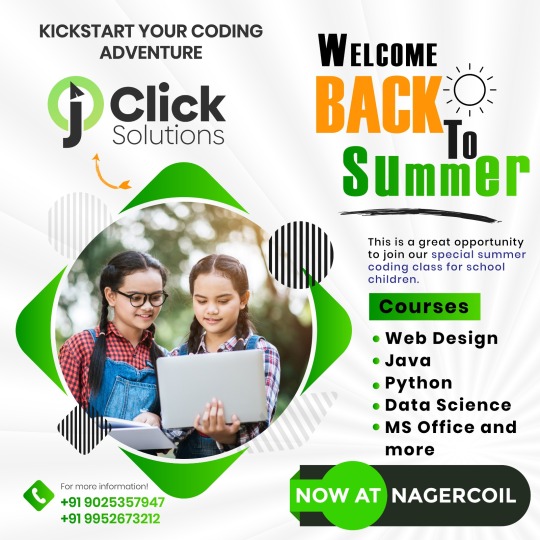
#MERN STACK in Nagercoil
#MERNSTACKinNagercoil
#Jclicksolutions
#JclicksolutionsMERNSTACKinNagercoil
2 notes
·
View notes
Text
Transform Your Career with Our Live Full Stack MERN Course on StuIntern!
Are you eager to become a full-stack web developer and master the latest technologies? StuIntern.com is very thrilled to introduce our Live Full Stack MERN Developer Course crafted to equip you with the skills & the knowledge needed to excel in the tech industry. With a focus on hands-on learning & the real-world applications, this course is your gateway to becoming a proficient full-stack developer using the MERN stack.
Why Enroll in Our Live Full Stack MERN Course?
1. Comprehensive Curriculum: Our course covers the entire MERN stack—MongoDB, Express.js, React, and Node.js—ensuring you acquire a thorough understanding of how each of them function together. Some areas that would be covered include:
MongoDB: Learn to design & then manage databases using this powerful NoSQL database.
Express.js: Understand how to build scalable web applications & the APIs with this minimalist web framework for Node.js.
React: Master the art of creating dynamic & the responsive user interfaces with this popular JavaScript library.
Node.js: Gain expertise in server-side JavaScript and learn to create robust back-end solutions.
2. Expert Instructors: Our instructors are professionals from industry who have spent years of their lives acquiring deep technical knowledge as well as experience. This will enable them to give insights that are practical in nature so that you can know what best practices are as well as advanced techniques provided by actual experts.
3. Real-World Projects: With our project-based approach, put your skills into practice in real scenarios. This will involve working on practical assignments as well as building full-stack applications from scratch which will give you skills that are valuable in future employment opportunities.
4. Interactive Live Sessions: Our live classes offer an opportunity for direct communication between tutors and students. It aids instant feedback and dynamic discussions while deepening their understanding of complex concepts.
5. Affordable Pricing: At StuIntern.com, we believe quality education should be accessible. Our MERN Stack Development Course is priced competitively, offering exceptional value without compromising on content or support. Flexible payment options are available to suit your budget.
6. Lifetime Access: Enroll once and have lifetime access to everything including course session recordings, code samples, other resources etc. Get back at the material when you want or learn about stuff you missed earlier.
Course Highlights
Hands-On Learning: Build and deploy your own full-stack applications.
Expert Guidance: Receive mentorship and support from experienced developers.
Career Preparation: Gain practical skills and a portfolio of projects to showcase to potential employers.
Flexible Schedule: Join live sessions at times that fit your schedule, with recordings available for review.
How to Enroll
1. Visit StuIntern.com: Navigate to the MERN Stack Course page.
2. Select Your Plan: Choose the course package that aligns with your learning goals and budget.
3. Register Online: Fill out the registration form and complete your payment through our secure system.
4. Get Started: Receive all the necessary details to join live sessions and access course materials.
Don’t Wait—Transform Your Future Today!
Step forward in web development skill and create a path to a bright career with our Live MERN Stack Developer Course. Reserve your s-eat now because space is limited and start your journey to becoming an accomplished full-stack developer.
For further information, or to register go to StuIntern.com and take the first step in mastering the MERN stack.
StuIntern.com—Empowering Your Tech Career with Excellence!
4 notes
·
View notes
Text
Top 20 Backend Development Tools In 2023
Backend development plays a crucial role in the operation and performance optimisation of web and mobile applications, serving as their foundational framework. In the context of the dynamic technological environment, it is imperative for developers to remain abreast of the most recent and effective backend development technologies. In the year 2023, a plethora of advanced tools have surfaced, leading to a significant transformation in the approach to backend development. Reach out to Nivida Web Solutions - a noted Web development company in Vadodara and let's craft a website that sets you apart.
This analysis aims to examine the leading 20 backend development tools projected for the year 2023, which possess the potential to optimise operational effectiveness, raise work output, and achieve exceptional outcomes.
1. Node.js:
Node.js continues to be a prominent contender in the realm of backend development, offering a resilient framework for constructing scalable, server-side applications through the utilisation of JavaScript. The asynchronous and event-driven nature of the system renders it highly suitable for real-time applications and microservices.
2. Express.js:
Express.js is a Node.js framework that offers a basic and flexible approach to backend development. It achieves this by providing streamlined routing, efficient handling of HTTP requests, and effective management of middleware. The software possesses a high degree of extensibility, allowing developers to create tailored solutions.
3. Django:
Django, a renowned Python framework, is widely recognised for its exceptional performance, robust security measures, and remarkable scalability. The framework adheres to the "batteries-included" principle, providing a wide range of pre-installed functionalities and libraries that enhance the speed and efficiency of the development process.
4. Flask:
Flask, an additional Python framework, is characterised by its lightweight nature and user-friendly interface. The framework offers fundamental capabilities for backend development and enables developers to incorporate additional functionalities as required, thus rendering it very adaptable.
5. Spring Boot:
Spring Boot, which is built on the Java programming language, streamlines the process of creating applications that are ready for deployment by employing a convention-over-configuration methodology. The platform provides a variety of functionalities to construct resilient and scalable backend systems. Embark on a digital journey with Nivida Web Solutions - the most distinguished Web development company in Gujarat. Let's create a stunning, functional website tailored to your business!
6. Ruby on Rails:
Ruby on Rails, also referred to as Rails, is renowned for its high level of efficiency and user-friendly nature. The framework employs the Ruby programming language and places a strong emphasis on convention over configuration, facilitating expedited development processes.
7. ASP.NET Core:
ASP.NET Core is a highly adaptable and efficient cross-platform framework that facilitates the development of backend solutions through the utilisation of the C# programming language. The product provides exceptional performance, robust security measures, and effortless compatibility with many systems.
8. Laravel:
Laravel, a framework developed using the PHP programming language, is well-acknowledged for its sophisticated syntax and user-centric functionalities. The utilisation of this technology streamlines intricate operations such as authentication, caching, and routing, hence facilitating an expedited development procedure.
9. NestJS:
NestJS is a Node.js framework that adheres to the architectural patterns established by Angular, hence exhibiting a progressive nature. The software possesses a high degree of modularity, hence facilitating the scalability and maintenance of applications. NestJS places a strong emphasis on the principles of maintainability and testability.
10. RubyMine:
RubyMine is an influential integrated development environment (IDE) designed specifically for the purpose of facilitating Ruby on Rails development. The software provides advanced code assistance, navigation, and debugging functionalities, hence augmenting the efficiency of Ruby developers. Looking for a standout web presence? Let Nivida Web Solutions - the most popular Web development company in India craft a website that impresses. Reach out now and let's get started!
11. PyCharm:
PyCharm, an integrated development environment (IDE) designed specifically for the Python programming language, is extensively utilised in the realm of backend development. The software offers intelligent code completion, comprehensive code analysis, and integrated tools to facilitate fast development and debugging processes.
12. IntelliJ IDEA:
IntelliJ IDEA, a widely utilised integrated development environment (IDE), provides comprehensive support for multiple programming languages, encompassing Java, Kotlin, and many more. The software is renowned for its advanced coding assistance and efficient capabilities, which greatly assist backend developers in producing code of superior quality.
13. Visual Studio Code (VSCode):
VSCode is a code editor that is known for its lightweight nature and open-source nature. Due to its extensive extension library and high level of customizability, this platform is widely favoured by backend developers due to its versatile nature.
14. Postman
Postman is an efficient and powerful application programming interface (API) testing tool that streamlines the process of doing backend testing and facilitating communication among developers. This tool facilitates the efficient design, testing, and documentation of APIs, hence assuring a smooth integration process. Every click counts in the digital world. Partner with Nivida Web Solutions - one of the top Web development companies in Vadodara to create a user-friendly, engaging website. Choose Nivida Web Solutions to boost your online impact!
15. Swagger:
Swagger, currently recognised as the OpenAPI Specification, serves to enable the process of designing, documenting, and evaluating APIs. The standardised structure of API description facilitates the seamless and uncomplicated integration process.
16. MongoDB:
MongoDB, a widely adopted NoSQL database, has notable advantages in terms of scalability, flexibility, and superior performance. Due to its capacity to effectively manage substantial quantities of data and accommodate various data models, it is extensively employed in the realm of backend development.
17. PostgreSQL:
PostgreSQL, an open-source relational database management system, is widely recognised for its robustness, adaptability, and comprehensive SQL capabilities. This option is highly recommended for projects that necessitate a resilient backend data repository.
18. Redis:
Redis is an essential component for caching and real-time analytics due to its ability to store data structures in memory. The indispensability of this technology lies in its high performance and its capability to effectively manage data structures, hence facilitating the optimisation of backend processes.
19. Kafka:
Apache Kafka is a distributed streaming platform that handles real-time data processing. It's commonly used for building scalable, fault-tolerant backend systems that require high-throughput data ingestion and processing. Dive into the digital era with a website that wows! Collaborate with Nivida Web Solutions - one of the leading Web development companies in Gujarat and boost your online presence.
20. Docker:
Docker is a containerization technology that facilitates the streamlined deployment and scalability of programs. The utilisation of containers enables backend developers to encapsulate their programmes and associated dependencies, hence ensuring uniformity and adaptability across diverse contexts.
Final Thoughts:
It is of utmost importance for developers to be updated on the most recent backend development technologies in order to effectively offer applications that are efficient, scalable, and safe. The compendium of the foremost 20 backend development tools projected for the year 2023 encompasses an extensive array of functions, adeptly accommodating the multifarious requirements of backend development endeavours. These technologies provide developers with the ability to enhance their backend development endeavours and provide users with outstanding experiences, whether through the creation of real-time applications, database management, or performance optimisation. Your website is your digital storefront. Make it appealing! Contact Nivida Web Solutions - one of the most renowned Web development companies in India and design a website that captivates your audience. Get started now!
7 notes
·
View notes
Text
Dive into the world of real-time applications with our ultimate guide to Node.js. Learn how to harness the asynchronous capabilities of Node.js to build scalable and efficient systems that handle real-time data effortlessly. Whether you're creating chat applications, live notifications, or real-time dashboards, this guide offers practical insights and hands-on examples to help you master real-time development.
With Node.js's non-blocking I/O and event-driven architecture, developing real-time applications has never been easier. Our guide walks you through every step, from setting up your environment to deploying your application. Embrace the power of real-time communication and elevate your development skills with Node.js today!
Read More : https://orbitwebtech.com/nodejs-vs-java/
#hire node js developers usa#nodejs#node js development#node js development company#nodejs development company in usa
2 notes
·
View notes